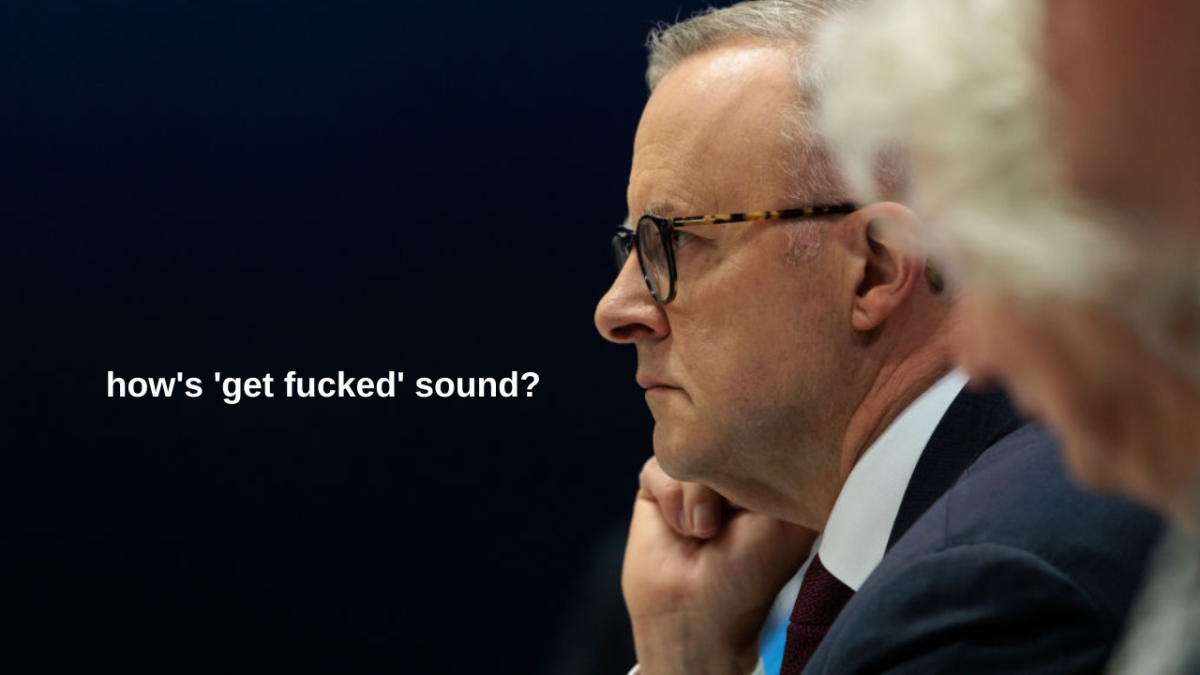
The Federal Government passed its Workforce Incentives Bill on Tuesday, allowing age pensioners to earn more without their pension payments being affected. But the final bill omitted some hard-fought amendments proposed by the Greens: that this allowance should be extended to all welfare recipients.
The bill allows age pensioners (who are 66 or older) to earn an extra $4000 a year on top of their existing $7800 threshold before their payments start to be deducted.
Social Services Minister Amanda Rishworth, who tabled the Workforce Incentives Bill, said on Wednesday ”giving older Australians the choice to engage in the workforce will not only benefit them by ensuring they keep more of their pension, it is also an important step towards addressing Australia’s labour shortages.”
But advocates and Greens Senator Janet Rice who proposed the amendments said the bill wouldn’t help fill job vacancies nor the people who really need the extra money — something the government could have easily done with a stroke of a pen.
“It’s frustrating to keep having to talk about this but it’s not going to go away while you’ve got people that are absolutely desperate, living in poverty and finding it totally impossible to live,” Rice told PEDESTRIAN.TV.
Welfare recipients have lived below the poverty line in Australia for years, but as inflation and the cost of living have escalated, things have gone from very bad to much worse for Australia’s most vulnerable people.
“I’m old enough to know it doesn’t need to be like this,” Rice said.
“When I was in my 20s, people who were unemployed and on the dole could live on it and it meant that [they] could get by.
“I’ve heard the most heartbreaking stories and such unnecessary suffering and it’s just getting worse [with] the increasing cost of food and housing.”
Rice also pointed out the hypocrisy of Prime Minister Anthony Albanese using his experience growing up in public housing to feign a connection to people who live similar lives to the one his mother’s represented.
“For Anthony Albanese to pretend that he understands what’s going on for people while continuing the really punitive and callous policies of the previous government, I just find unconscionable.”
The poverty line in Australia is $88 a day. That’s how much someone living here needs to earn to be able to afford the most basic food, rent, transport and medicine costs. JobSeeker recipients receive $48 a day.
If a recipient earns above $150 per fortnight after tax, payment reduces by 50 cents for each dollar between $150 and $256 then by 60 cents for each dollar over $256.
Minimum wage is $21.38 per hour nationwide, which means a recipient can work less than three-and-a-half hours a week before they’re effectively punished.
“You can’t even do a single shift a week without your JobSeeker payment getting cut,” Antipoverty Centre spokeswoman Kristin O’Connell told PEDESTRIAN.TV.
The Antipoverty Centre calculated that someone could work as many as 25 hours a week and would still be below the poverty line because of how much their payments would drop.
For those aged under 16 earning lower award rates and living on youth allowance, teens could be working 50 hours a week and still living in poverty.
Latest poverty line just dropped.
And guess what? the Henderson poverty line increased by $35 a week between June & September.#HPL is now ~$88 a day.
So to those folks who’ve been asking me if it’s feeling worse & harder for *everyone* right now, yeah, pretty much. #BTPM pic.twitter.com/Iwfflb6M7m
— @kristin8x@aus.social (@kristin8X) February 28, 2022
O’Connell said the Workforce Incentives Bill pitted so-called “deserving” welfare recipients like age pensioners against “undeserving” welfare recipients like disabled people or those on JobSeeker or youth allowance.
“Governments need a political football and unemployed people have been playing that role in this country for decades,” she said.
“Labor keeps spouting this line about not leaving anyone behind and it’s like they’re gaslighting people who rely on Centrelink payments.”
Rishworth said the move would benefit the approximately 51,000 age pensioners who were already in the workforce but has not said if or how it would help more people into work.
“This is all couched as somehow being able to solve labour shortages but their own modelling shows that hardly anyone is going to take up work as a result of this change,” O’Connell said.
“They know the jobs [in shortage] are not jobs that match the skills and capacity of people who are currently surviving on welfare. If you’ve got a shortage of nurses, what good is it for someone who’s 70 [and unqualified] to take up [that] work?”
Raising JobSeeker above the poverty line, from $668 to $1232 a fortnight, would cost the government about $15 billion a year, which frankly seems like fuck all when you compare it to the stage three tax cuts that will cost around $254 billion over 10 years and serve only to benefit Australia’s richest people.
But the fight continues for politicians and advocates.
O’Connell and Rice said it can feel like bashing your head against a wall, but the more noise they make, the more pressure will build to force the government’s hand.
“The reason we [make submissions] is not because we actually think they’ll listen to evidence or care about people, we do it because we feel it is necessary that these views, experiences and recommendations are on the record so they cannot say that they are ignorant or did not know,” O’Connell said.
“The longer this goes on, the more people I’m talking to who feel suicide is their only option, who are becoming homeless … I need the government to stop pretending they don’t know that these decisions are killing people.”



